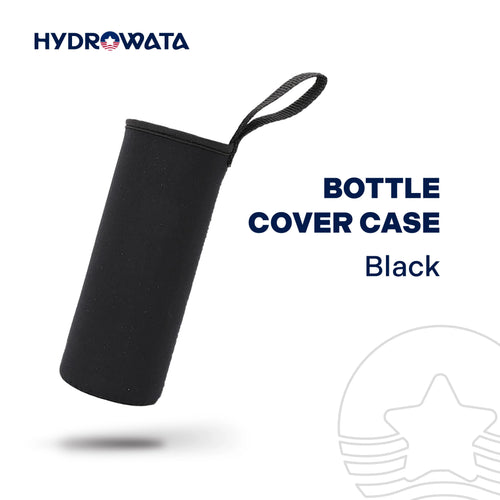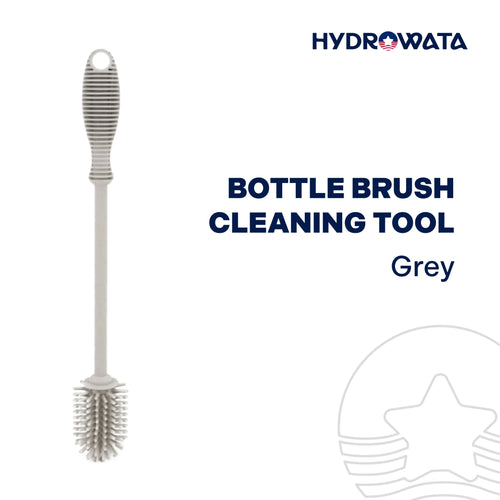Hydrogen tablets are becoming a popular choice for people looking to support their health and wellness naturally. Designed to easily create hydrogen-rich water at home or on the go, our premium tablets offer a convenient way to tap into the potential benefits of molecular hydrogen—such as increased energy, reduced inflammation, and antioxidant support.
While wellness trends come and go, hydrogen tablets are backed by growing scientific interest. In this article, we’ll break down how they work, what the research says, and why hydrogen tablets stand out as a smart, effective addition to your daily routine.
What Are Hydrogen Tablets?
Hydrogen tablets are supplements that react with water to produce molecular hydrogen (H₂), a gas known for its antioxidant properties. When you drop a tablet into water, it dissolves and releases hydrogen gas, which you then drink before the gas escapes. The goal is to boost the body with hydrogen molecules that may help neutralize harmful free radicals.
These tablets often contain magnesium and other ingredients that help create the hydrogen reaction. They’re promoted as an easy, portable way to enjoy the benefits of hydrogen water without needing an expensive machine or device.
How Do Hydrogen Water Tablets Work?
Hydrogen water tablets work by reacting with water to release molecular hydrogen (H₂) gas. Most tablets contain magnesium, which reacts with water to form hydrogen and magnesium hydroxide.
When you drop a tablet into a glass of water, it dissolves and generates bubbles of hydrogen gas, infusing the water with this antioxidant-rich molecule. You then drink the water before the gas escapes.
Molecular hydrogen is believed to help neutralize harmful free radicals, reduce oxidative stress, and support overall wellness. This method offers a convenient way to produce hydrogen-rich water without needing an expensive machine.
Benefits of Hydrogen Tablets
Hydrogen tablets are advertised as offering a range of health benefits, many of which are tied to the antioxidant properties of molecular hydrogen. Here's a closer look at the most commonly claimed benefits:
Antioxidant Protection
One of the most cited benefits is hydrogen's ability to fight oxidative stress. Molecular hydrogen acts as a selective antioxidant, which means it can target and neutralize harmful free radicals without interfering with beneficial reactive oxygen species. This may help slow down cellular aging and reduce the risk of chronic diseases linked to oxidative damage.
Reduced Inflammation
Chronic inflammation is at the root of many health problems, including heart disease, arthritis, and even some cancers. Some studies suggest that hydrogen water might reduce markers of inflammation in the body. People who use hydrogen tablets often report feeling less joint pain or muscle soreness, especially after workouts.
Improved Energy and Mental Clarity
Many users say that hydrogen tablets give them a natural energy boost and help them think more clearly. While the research is still emerging, some believe that reduced oxidative stress improves mitochondrial function (the part of the cell that makes energy), leading to better mental and physical performance.
Exercise Recovery and Performance
Athletes and fitness enthusiasts are increasingly turning to hydrogen tablets for faster recovery. Hydrogen-rich water may help reduce lactic acid buildup, leading to less muscle fatigue and soreness. A few small studies have shown that those who drink hydrogen water before and after exercise recover more quickly than those who drink plain water.
Gut Health Support
There’s also growing interest in how hydrogen may benefit the gut. Some believe it helps reduce gastrointestinal inflammation and improve digestion. While this area needs more research, early reports and animal studies are promising.
Skin and Aging Benefits
ecause of its antioxidant action, hydrogen may support healthier skin by reducing oxidative damage caused by sun exposure and environmental stressors. Some users say their skin looks clearer and more youthful after regular use.
Potential for Chronic Conditions
Though still under investigation, hydrogen therapy is being explored for its role in managing chronic conditions like metabolic syndrome, type 2 diabetes, and neurodegenerative diseases. However, more robust studies are needed to confirm its effectiveness in these areas.
While many of these benefits are backed by preliminary research and anecdotal reports, it’s important to note that hydrogen tablets should not be seen as a cure-all. They may support a healthy lifestyle, but they work best when combined with proper diet, exercise, and medical care.
What Science Says About Hydrogen Tablets
Scientific interest in molecular hydrogen has grown over the past decade, especially for its antioxidant and anti-inflammatory properties. Research suggests that molecular hydrogen may selectively target harmful free radicals, potentially reducing oxidative stress and improving health outcomes.
Several small-scale studies have shown encouraging results. For example, some clinical trials found that hydrogen-rich water reduced fatigue in athletes, improved insulin sensitivity in people with metabolic syndrome, and helped reduce inflammation markers in patients with rheumatoid arthritis. These findings support the idea that hydrogen may offer real health benefits, particularly as a supplement to a balanced lifestyle.
In summary, while the science behind hydrogen is promising, it’s still developing. Hydrogen tablets might offer potential benefits, but they are not a guaranteed solution or replacement for medical treatment.
Are There Any Risks or Side Effects?
Hydrogen tablets are generally considered safe for most people when used as directed. Molecular hydrogen is a natural component of the human body and is even produced in small amounts by gut bacteria. Because of this, it’s usually well tolerated.
Most users report no side effects from drinking hydrogen-rich water. Some people may experience mild digestive changes, like increased gas or bloating, especially when first starting out. These symptoms usually go away as the body adjusts.
One potential concern is the tablet’s ingredients. Some brands use metallic magnesium, which reacts with water to produce hydrogen. In high doses, magnesium can cause diarrhea or stomach upset. It’s important to follow dosing instructions and not consume more tablets than recommended.
Also, hydrogen tablets should not be taken with carbonated beverages or alcohol, as this can alter the chemical reaction. And if you have a medical condition or take medications, consult your healthcare provider before adding any supplement to your routine.
Overall, the risks are minimal for healthy individuals, but quality and proper use matter. Stick with reputable brands and always read the label to avoid unnecessary fillers or unsafe additives.
What to Look for in a Quality Hydrogen Tablet
Not all hydrogen tablets are created equal, so it’s important to know what to look for to ensure you're getting a safe and effective product.
Hydrogen Concentration
Check how much molecular hydrogen (H₂) the tablet actually delivers. A good tablet should provide at least 1–2 parts per million (ppm) of dissolved hydrogen in water. Some premium products can reach up to 10 ppm. Higher concentrations may offer more noticeable benefits, especially for antioxidant support.
Dissolution Time
Quality hydrogen tablets should dissolve fully in 1 to 2 minutes when dropped into water. Tablets that take longer may not be properly formulated or may release less hydrogen. Make sure to drink the water soon after the tablet dissolves—hydrogen gas escapes quickly.
Proper Packaging
Hydrogen gas is highly volatile and can dissipate easily. Look for products that are individually sealed or come in airtight packaging to prevent the tablets from degrading over time. Avoid bulk packaging where tablets are exposed to air and moisture.
Ingredients and Additives
Look for tablets with clean ingredient lists. The most common active ingredient is metallic magnesium, which reacts with water to create hydrogen. Avoid tablets with unnecessary fillers, artificial flavors, or additives that don’t contribute to the hydrogen production.
Third-Party Testing
Reputable brands will provide lab results or certifications from independent testing labs. These tests verify the hydrogen concentration and safety of the tablet. Look for transparency from the manufacturer—if they can’t prove what’s in the tablet, it’s a red flag.
User Reviews and Reputation
Check for reviews and feedback from real users. While personal experiences vary, consistently positive reviews may point to a more trustworthy product. Avoid overly hyped products that rely solely on marketing without sharing real data.
Ease of Use and Taste
A good hydrogen tablet should be easy to use—just drop into a glass of water and drink. Some tablets can leave a metallic or bitter taste, so look for options that are more palatable if flavor is a concern.
By choosing a high-quality hydrogen tablet, you improve your chances of experiencing the claimed benefits while minimizing any risks. Quality matters more than brand hype—so read labels, check concentrations, and do your research.
Is It Worth the Investment?
Considering the price and benefits, hydrogen tablets might be worth the investment—especially if you're looking for added antioxidant support in a convenient form. They are more affordable and portable than hydrogen water machines, making them accessible to many people.
However, their effectiveness depends on the quality of the product and individual health goals. For those managing chronic inflammation or intense exercise recovery, they may offer real value. But if you’re just curious and hoping for a miracle fix, the cost might outweigh the impact. Start small, monitor results, and decide if they fit your lifestyle and wellness routine.
Conclusion: Hydrogen Tablet - Healthy Boost or Hype?
Hydrogen tablets offer a convenient way to enjoy the potential benefits of molecular hydrogen, including antioxidant support and improved recovery. While early studies show promise, more research is needed to confirm long-term effects. For now, they appear to be a safe supplement that may support overall health, especially when combined with good habits like hydration, exercise, and nutrition.
Just remember—not all tablets are equal. Choose wisely, manage your expectations, and view them as a helpful tool rather than a cure-all. In the end, hydrogen tablets might be more than hype—but only if you choose quality over marketing.
Frequently Asked Questions
1. What are hydrogen tablets?
Hydrogen tablets are specially formulated supplements that react with water to produce molecular hydrogen (H₂) gas. When dissolved in water, they create hydrogen-rich water, which is consumed for its potential antioxidant and wellness benefits.
2. How do hydrogen tablets work?
Most hydrogen tablets contain elemental magnesium, which reacts with water to produce hydrogen gas and magnesium hydroxide. This process infuses the water with molecular hydrogen, which is then consumed before the gas escapes.
3. What are the benefits of drinking hydrogen-rich water?
Hydrogen-rich water may help reduce oxidative stress, support healthy inflammation response, improve energy levels, and promote overall wellness. These benefits are linked to the antioxidant properties of molecular hydrogen.
4. When is the best time to take hydrogen tablets?
You can take hydrogen tablets at any time of the day. Some people prefer taking them in the morning for an energy boost or before workouts. It’s best to drink the water immediately after the tablet dissolves to retain the hydrogen gas.
5. Can I use hydrogen tablets in any type of water?
For best results, use clean, room-temperature drinking water (not carbonated or mineral-heavy water). Avoid using hot water, as heat can cause the hydrogen gas to escape too quickly.
6. Are there any side effects?
Hydrogen tablets are generally safe for most people when used as directed. However, if you have any health conditions—especially kidney issues or are on medication—it’s important to consult your doctor before use. This ensures the supplement is appropriate for your specific health needs.
7. How long should I wait after the tablet dissolves before drinking?
Drink the water immediately after the tablet has fully dissolved—typically within 1–2 minutes—to maximize hydrogen concentration and ensure optimal benefit.
8. Can hydrogen tablets replace my current supplements or medications?
Hydrogen tablets are not a replacement for prescribed medications or a balanced diet. They are a wellness supplement intended to support overall health.
9. Do hydrogen tablets have a taste?
Most hydrogen tablets have little to no taste, though some may leave a slight mineral flavor due to magnesium. You can mix them in flavored water if preferred (as long as it’s still water).
10. How should I store hydrogen tablets?
Store them in a cool, dry place away from moisture and sunlight to maintain their potency and effectiveness.





